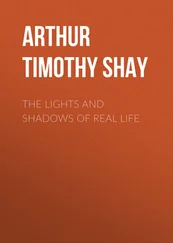Владимир Набоков - The Real Life of Sebastian Knight
Здесь есть возможность читать онлайн «Владимир Набоков - The Real Life of Sebastian Knight» весь текст электронной книги совершенно бесплатно (целиком полную версию без сокращений). В некоторых случаях можно слушать аудио, скачать через торрент в формате fb2 и присутствует краткое содержание. Жанр: Классическая проза, на английском языке. Описание произведения, (предисловие) а так же отзывы посетителей доступны на портале библиотеки ЛибКат.
- Название:The Real Life of Sebastian Knight
- Автор:
- Жанр:
- Год:неизвестен
- ISBN:нет данных
- Рейтинг книги:5 / 5. Голосов: 1
-
Избранное:Добавить в избранное
- Отзывы:
-
Ваша оценка:
- 100
- 1
- 2
- 3
- 4
- 5
The Real Life of Sebastian Knight: краткое содержание, описание и аннотация
Предлагаем к чтению аннотацию, описание, краткое содержание или предисловие (зависит от того, что написал сам автор книги «The Real Life of Sebastian Knight»). Если вы не нашли необходимую информацию о книге — напишите в комментариях, мы постараемся отыскать её.
The Real Life of Sebastian Knight — читать онлайн бесплатно полную книгу (весь текст) целиком
Ниже представлен текст книги, разбитый по страницам. Система сохранения места последней прочитанной страницы, позволяет с удобством читать онлайн бесплатно книгу «The Real Life of Sebastian Knight», без необходимости каждый раз заново искать на чём Вы остановились. Поставьте закладку, и сможете в любой момент перейти на страницу, на которой закончили чтение.
Интервал:
Закладка:
The tool was there, it must now be put to use. My first duty after Sebastian's death was to go through his belongings. He had left everything to me and I had a letter from him instructing me to bum certain of his papers. It was so obscurely worded that at first I thought it might refer to rough drafts or discarded manuscripts, but I soon found out that, except for a few odd pages dispersed among other papers, he himself had destroyed them long ago, for he belonged to that rare type of writer who knows that nothing ought to remain except the perfect achievement: the printed book; that its actual existence is inconsistent with that of its spectre, the uncouth manuscript flaunting its imperfections like a revengeful ghost carrying its own head under its arm; and that for this reason the litter of the workshop, no matter its sentimental or commercial value, must never subsist.
When for the first time in my life I visited Sebastian's small flat in London at 36 Oak Park Gardens, I had an empty feeling of having postponed an appointment until too late. Three rooms, a cold fireplace, silence. During the last years of his life he had not lived there very much, nor had he died there. Half a dozen suits, mostly old, were hanging in the wardrobe, and for a second I had an odd impression of Sebastian's body being stiffly multiplied in a succession of square-shouldered forms. I had seen him once in that brown coat; I touched its sleeve, but it was limp and irresponsive to that faint call of memory. There were shoes, too, which had walked many miles and had now reached the end of their journey. Folded shirts lying on their backs. What could all these quiet things tell me of Sebastian? His bed. A small old oil-painting, a little cracked (muddy road, rainbow, beautiful puddles) on the ivory white of the wall above. The eye-spot of his awakening.
As I looked about me, all things in that bedroom seemed to have just jumped back in the nick of time as if caught unawares, and now were gradually returning my gaze, trying to see whether I had noticed their guilty start. This was particularly the case with the low, white-robed armchair near the bed; I wondered what it had stolen. Then by groping in the recesses of its reluctant folds I found something hard: it turned out to be a Brazil nut, and the armchair again folding its arms resumed its inscrutable expression (which might have been one of contemptuous dignity).
The bathroom. The glass shelf, bare save for an empty talc-powder tin with violets figured between its shoulders, standing there alone, reflected in the mirror like a coloured advertisement.
Then I examined the two main rooms. The dining-room was curiously impersonal, like all places where people eat – perhaps because food is our chief link with the common chaos of matter rolling about us. There was, it is true, a cigarette end in a glass ashtray, but it had been left there by a certain Mr McMath, house agent.
The study. From here one got a view of the back garden or park, the fading sky, a couple of elms, not oaks, in spite of the street name's promise. A leather divan sprawling at one end of the room. Bookshelves densely peopled. The writing desk. There was almost nothing on it: a red pencil, a box of paper clips – it looked sullen and distant, but the lamp on its western edge was adorable. I found its pulse and the opal globe melted into light: that magic moon had seen Sebastian's white moving hand. Now I was really getting down to business. I took the key that had been bequeathed me and unlocked the drawers.
First of all I dislodged the two bundles of letters on which Sebastian had scribbled: to be destroyed. One was folded in such a fashion that I could not get a glimpse of the writing: the notepaper was egg-shell blue with a dark-blue rim. The other packet consisted of a medley of notepaper criss-crossed in a bold feminine scrawl. I guessed whose it was. For a wild instant I struggled with the temptation to examine closer both bundles. I am sorry to say the better man won. But as I was burning them in the grate one sheet of the blue became loose, curving backwards under the torturing flame, and before the crumpling blackness had crept over it, a few words appeared in full radiance, then swooned and all was over.
I sank down in an armchair and mused for some moments. The words I had seen were Russian words, part of a Russian sentence – quite insignificant in themselves, really (not that I might have expected from the flame of chance the slick intent of a novelist's plot). The literal English translation would be 'thy manner always to find…' – and it was not the sense that struck me, but the mere fact of its being in my language. I had not the vaguest inkling as to who she might be, that Russian woman whose letters Sebastian had kept in close proximity to those of Clare Bishop – and somehow it perplexed and bothered me. From my chair beside the fireplace, which was again black and cold, I could see the fair light of the lamp on the desk, the bright whiteness of paper brimming over the open drawer and one sheet of foolscap lying alone on the blue carpet, half in shade, cut diagonally by the limit of the light. For a moment I seemed to see a transparent Sebastian at his desk; or rather I thought of that passage about the wrong Roquebrune: perhaps he preferred doing his writing in bed?
After a while I went on with my business, examining and roughly classifying the contents of the drawers. There were many letters. These I set aside to be gone through later. Newspaper cuttings in a gaudy book, an impossible butterfly on its cover. No, none of them were reviews of his own books: Sebastian was much too vain to collect them; nor would his sense of humour allow him to paste them in patiently when they did come his way. Still, as I say, there was an album with cuttings, all of them referring (as I found out later when perusing them at leisure) to incongruous or dream-absurd incidents which had occurred in the most trivial places and conditions. Mixed metaphors too, I perceived, met with his approval, as he probably considered them to belong to the same faintly nightmare category. Between some legal documents I found a slip of paper on which he had begun to write a story – there was only one sentence, stopping short but it gave me the opportunity of observing the queer way Sebastian had – in the process of writing – of not striking out the words which he had replaced by others, so that, for instance, the phrase I encountered ran thus: .As he a heavy A heavy sleeper, Roger Rogerson, old Rogerson bought old Rogers bought, so afraid Being a heavy sleeper, old Rogers was so afraid of missing tomorrows. He was a heavy sleeper. He was mortally afraid of missing tomorrow's event glory early train glory so what he did was to buy and bring home in a to buy that evening and bring home not one but eight alarm clocks of different sizes and vigour of ticking nine eight eleven alarm clocks of different sizes ticking which alarm clocks nine alarm clocks as a cat has nine which he placed which made his bedroom look rather like a'
I was sorry it stopped here.
Foreign coins in a chocolate box: francs, marks, schillings, crowns – and their small change. Several fountain pens. An Oriental amethyst, unset. A rubber band. A glass tube of tablets for headache, nervous breakdown, neuralgia, insomnia, bad dreams, toothache. The toothache sounded rather dubious. An old notebook (1926) filled with dead telephone numbers. Photographs.
I thought I should find lots of girls. You know the kind – smiling in the sun, summer snapshots, continental tricks of shade, smiling in white on pavement, sand or snow – but I was mistaken. The two dozen or so of photographs I shook out of a large envelope with the laconic Mr H. written on top in Sebastian's hand, all featured one and the same person at different stages of his life: first a moonfaced urchin in a vulgarly cut sailor suit, next an ugly boy in a cricket-cap, then a pug-nosed youth, and so on till one arrived at a series of full-grown Mr H. – a rather repellent bulldog type of man, getting steadily fatter in a world of photographic backgrounds and real front gardens. I learnt who the man 'was supposed to be when I came 'across a newspaper clipping attached to one of the photographs:
Читать дальшеИнтервал:
Закладка:
Похожие книги на «The Real Life of Sebastian Knight»
Представляем Вашему вниманию похожие книги на «The Real Life of Sebastian Knight» списком для выбора. Мы отобрали схожую по названию и смыслу литературу в надежде предоставить читателям больше вариантов отыскать новые, интересные, ещё непрочитанные произведения.
Обсуждение, отзывы о книге «The Real Life of Sebastian Knight» и просто собственные мнения читателей. Оставьте ваши комментарии, напишите, что Вы думаете о произведении, его смысле или главных героях. Укажите что конкретно понравилось, а что нет, и почему Вы так считаете.













the net the easiest thing to be aware of.
I say to you, I certainly get annoyed whilst people
think about worries that they plainly don't recognize about.
You controlled to hit the nail upon the highest and defined out the whole thing without having side-effects , other folks can take a signal.
Will likely be back to get more. Thank you